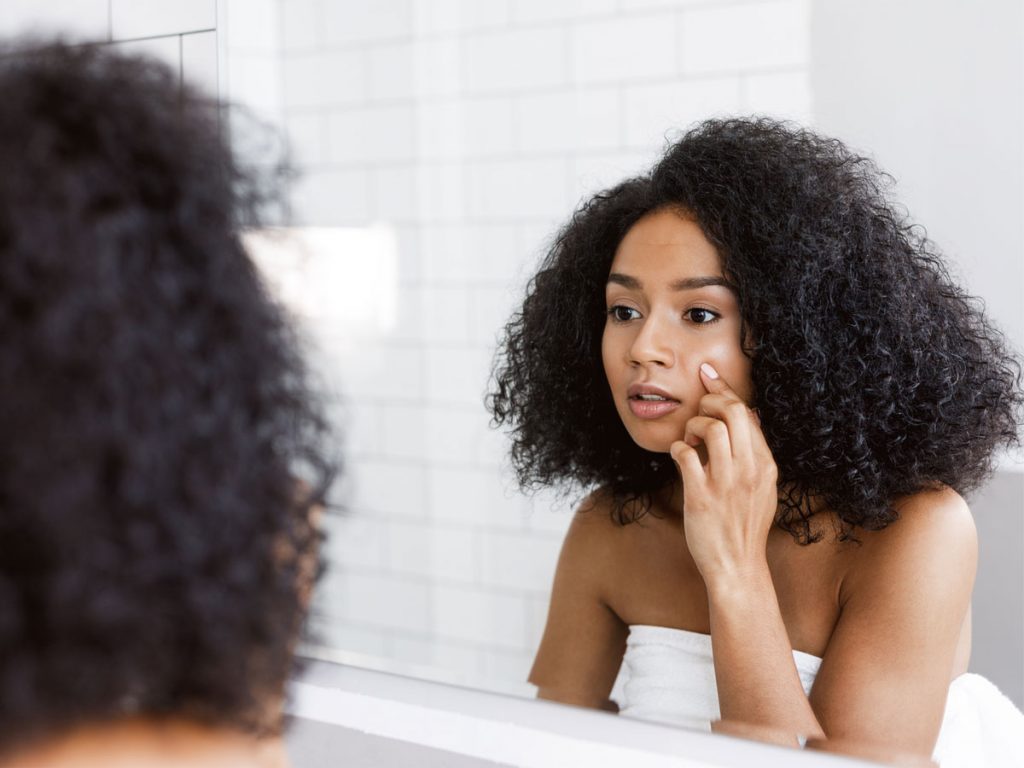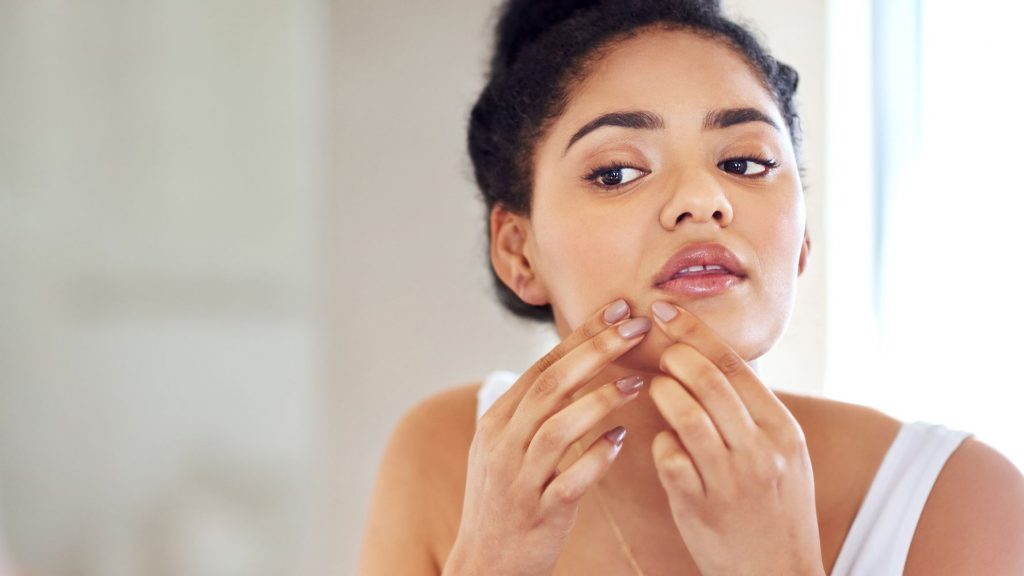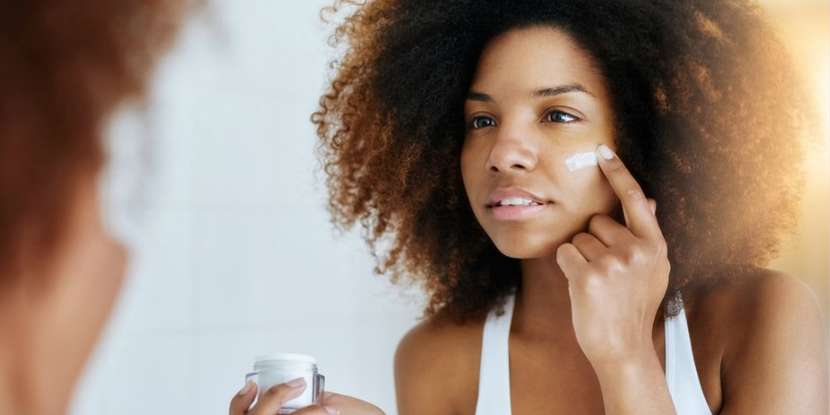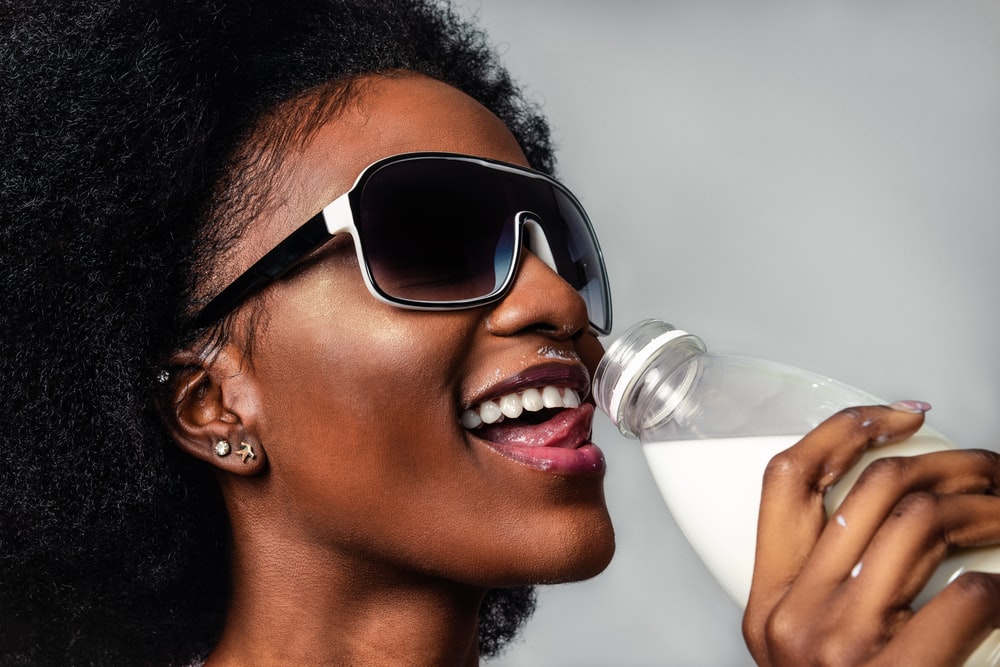
Most women will tell you that they know that Aunty Flo is coming to town when their usually smooth face turns into a bumpy, oily mess.
You can usually tell a woman is on her period when a rash breaks out on their forehead or there is one aggressive pimple taking centre stage on her chin.
The reason why your pimples come to town ahead of Aunty Flo is due to hormonal fluctuations.
Ahead of your period, there is a drop in the Progesterone levels and a spike in Estrogen levels which sends your sebaceous glands into overdrive producing more sebum, an oily substance that lubricates your skin. This, in turn, leads to clogged pores thus breakouts.

At the end of your period, we see the opposite of what happens before your period begin to happen, Progesterone rises and Estrogen falls which can also lead to breakouts.
So how do you prevent hormonal acne from wreaking havoc on your face?
1.Unclog Your Pores
You can do this by using products that contain Salicylic, Glycolic, and Lactic acids.
2. Use Tea Tree Oil/ Spot treat with Benzoyl Peroxide

Apply tea tree oil to the affected areas. Tea tree oil removes dirt and toxins, naturally balances your oils and prevents your skin from clogging. It also reduces inflammation that is caused by acne.
Products containing Benzoyl Peroxide are effective against acne however some of the side effects include burning, irritation and redness.
3.Reduce Your Intake of Sugar and Dairy

If possible cut out or reduce your intake of dairy products and simple sugars like rice, soda, and juice.
“Blood sugar spikes are known to cause inflammation and hormonal fluctuations, which can exacerbate acne. Think natural foods! The paleo diet is best, but carb sources to consider should be natural root vegetables (squash, potato, carrot) along with quinoa and sometimes gluten-free oats or brown rice,” Dermatologist Samer Jaber told HuffPost.